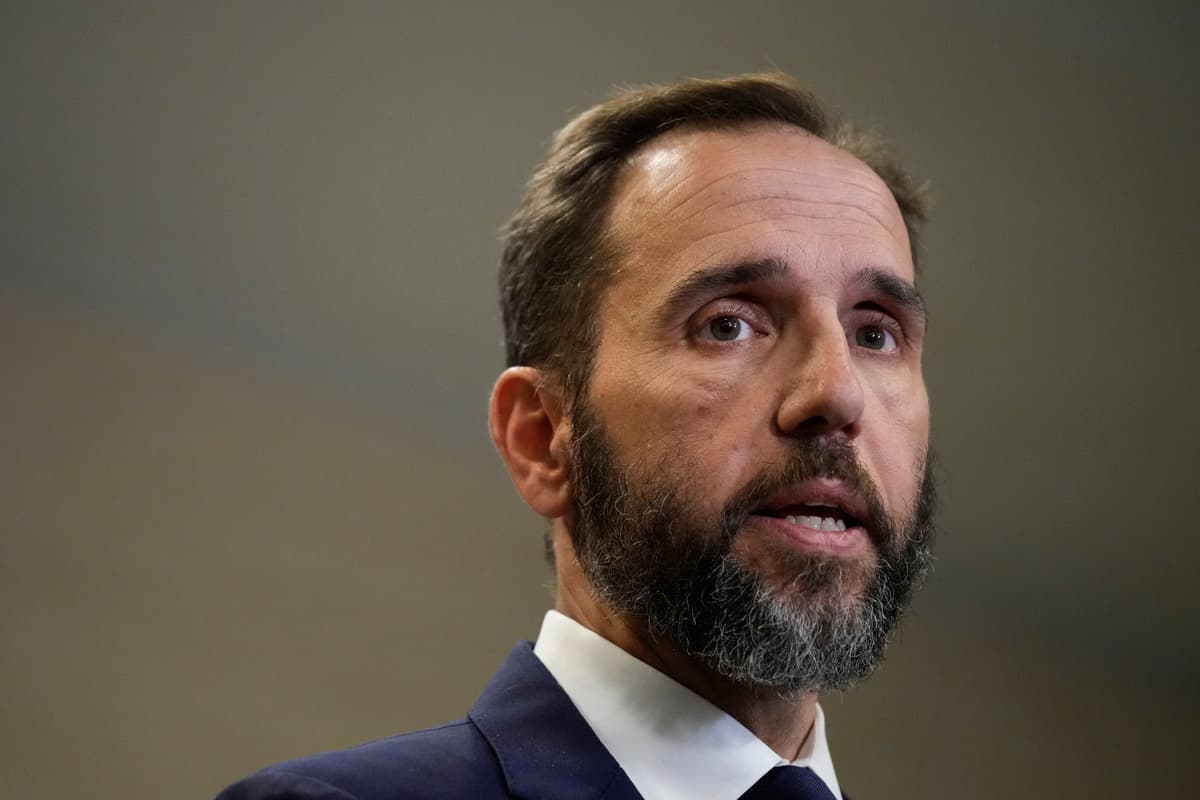How a Determined Jack Smith Could Haunt Trump — Even If He Returns to the White House for a Second Term
The special counsel appears unlikely to yield, even if the 45th president becomes the 47th one.

Judge Aileen Cannon’s dismissal of the Mar-a-Lago charges against President Trump means that there will be no federal criminal trial of the 45th president before November’s election. Special Counsel Jack Smith, though, could be digging in for a post-Inauguration struggle to keep his charges alive.
Mr. Smith’s failure to bring Trump before a jury could mean the end of federal criminal peril for the former president — if Trump wins the election. That would allow him to either issue a self-pardon or hire an attorney general to fire Mr. Smith and drop the 40 Mar-a-Lago charges and four January 6 ones.
Mr. Smith, though, exhibits no sign of relenting. He has filed a notice of appeal with the United States Court of Appeals for the 11th Circuit, and will soon make his case to the riders that Judge Cannon erred in holding that his appointment was unconstitutional and his indictment was defective. Those jurists have reversed her before, with respect to a special master.
If Vice President Harris wins the election, Mr. Smith would likely have world enough and time to pursue that appeal. The special prosecutor would also have the runway to litigate, before a more sympathetic judge, Tanya Chutkan, the immunity issue that has upended his January 6 case. The justices directed Judge Chutkan to decide which acts charged in Mr. Smith’s indictment are official and which are unofficial. The former category is presumptively immune; the latter is fair game for prosecutors.
Hearings on this head have not been scheduled. Even if Trump regains the White House, though, dispensing of Mr. Smith could be less than straightforward. The regulations governing special counsels mandate that the “Attorney General may remove a Special Counsel for misconduct, dereliction of duty, incapacity, conflict of interest, or for other good cause.” That means that firing the special counsel is a job for the attorney general.
During Trump’s first term, the acting attorney general, Rod Rosenstein, refrained from moving against Special Counsel Robert Mueller. Prior to Mr. Rosenstein being in situ, Trump had been enraged at his first attorney general, Jeff Sessions, for having recused himself from the Russia investigation, failing to protect his boss.
Even if Trump appoints an attorney general who sees the case as he does, Mr. Smith could sue in federal court, alleging that his termination was unlawful. A complication, though, could be that Judge Cannon has already ruled that his appointment was invalid, and that his work so far has been ultra vires.
Mr. Smith’s objection to a possible termination would likely center on the dictate that a special counsel can only be fired for “good cause.” The special counsel could argue, citing the deference owed to prosecutors, that objecting to his charging decisions is not grounds for dismissal. Trump could respond that staying his hand is an intrusion on presidential prerogative. One legal scholar, Joshua Blackman, tells the Sun that he expects Mr. Smith to sue.
In 1988, the Supreme Court, in Morrison v. Olson, held that the powers remitted to a precursor to the special counsel — it was called independent counsel — did not infringe on the powers of the presidency. The lone dissenter, Justice Antonin Scalia, warned that “this wolf comes as a wolf” as a constitutional threat because the Constitution ordains that the “executive Power shall be vested in a President of the United States of America.”
The independent counsel statute expired in 1999, unmourned by either party. The new role of special counsel doesn’t have its predecessor’s fangs. Still, its suggestion that only the attorney general can remove a special counsel, and that he needs a good reason if he is to give one a pink slip, could be seen by the justices as unconstitutionally undercutting the power vested by the Constitution solely in the president.
Justice Scalia could yet have another day. During oral arguments in Trump v. United States, the immunity case, Justice Brett Kavanaugh signaled his discontent with Morrison. He called that ruling one of the court’s “biggest mistakes” and a “terrible decision for the presidency and for the country.” If more justices turn out to agree with Justice Kavanaugh, another contest over the powers of the presidency — with Mr. Smith again at its center — could loom.
The possibility of a self-pardon is no sure thing. In those same oral arguments, Justice Neil Gorsuch ventured that the Supreme Court has “never answered whether a president” can direct that awesome power at themselves. If Trump tries it, a constitutional challenge would be likely, though who might have standing to challenge such an act could be another thorny question.
In 2018, Trump tweeted in respect of Mr. Mueller’s investigation that “I have the absolute right to PARDON myself, but why would I do that when I have done nothing wrong?” In court, Trump could cite 74 Federalist, where Alexander Hamilton wrote that the “benign prerogative of pardoning should be as little as possible fettered or embarrassed.”

